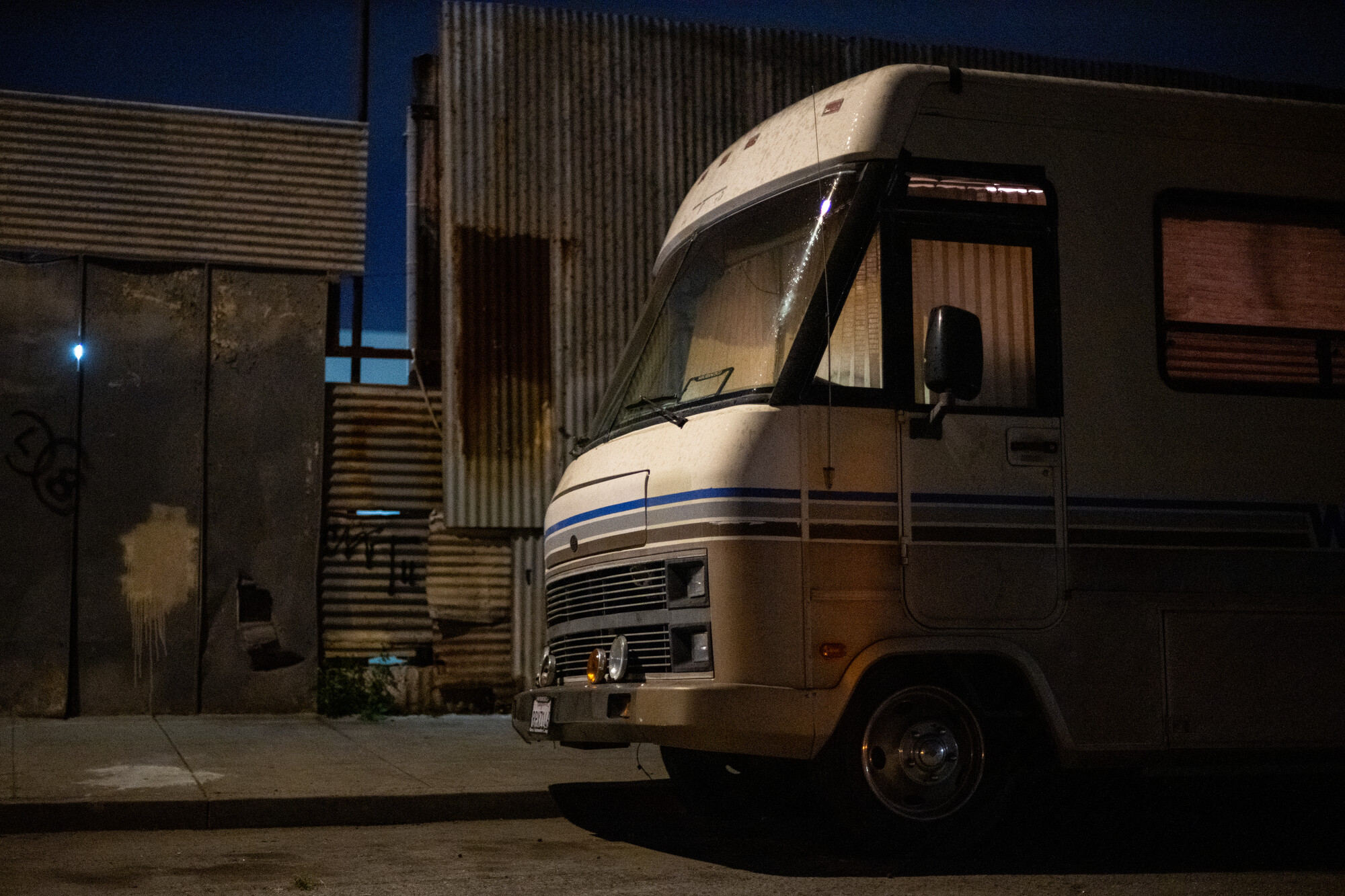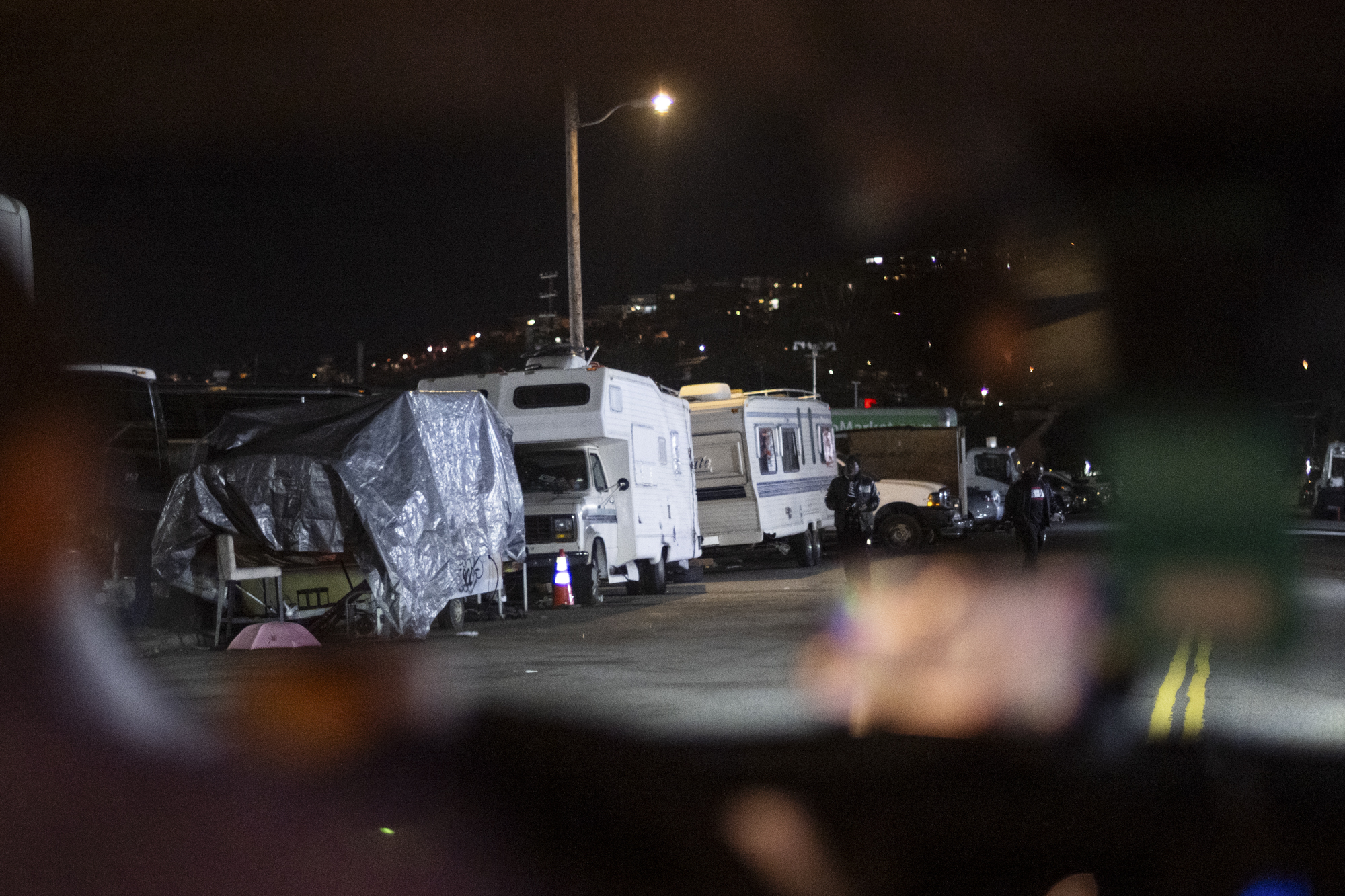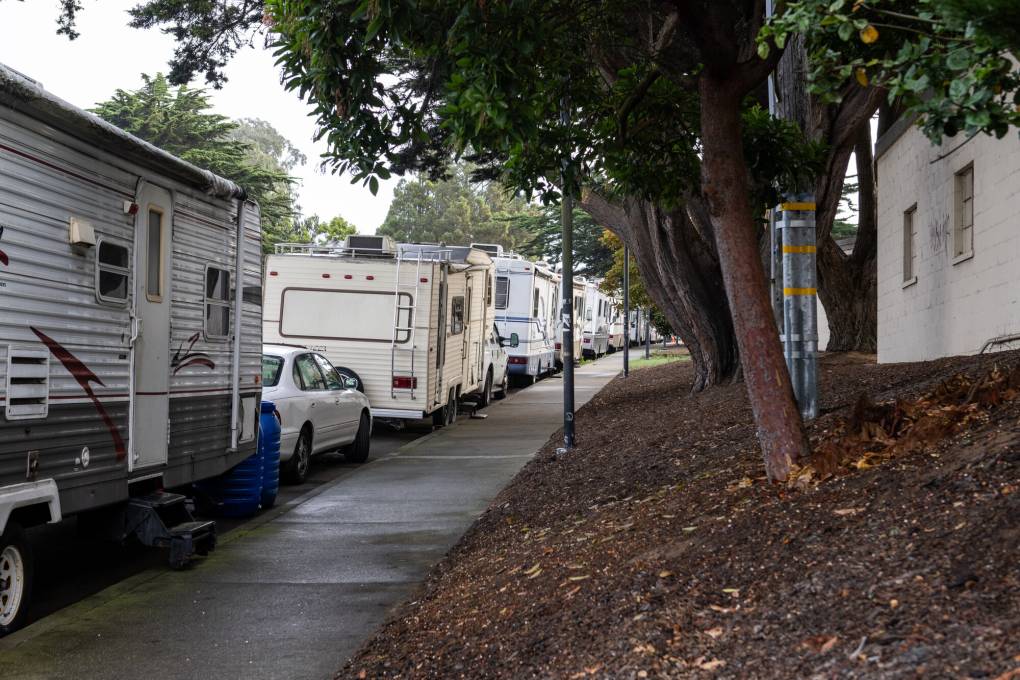Lurie’s proposal includes some exceptions for residents actively awaiting their placement into housing; they’ll be eligible for a temporary permit that allows them to remain parked until they can relocate.
Binder said she believes this plan could make it harder for people who are already in the queue for housing to get the resources they need.
“Those folks might experience further bottlenecking in the system if the few resources that are available are dedicated only to families who are living in RVs,” Binder said.
But Binder said the coalition isn’t staunchly opposed to what Lurie has proposed so far. Still, she would like to see changes to the vehicle buyback program, which she said “needs to be actually adequate and a true recognition of the value of the vehicle.” The city did not immediately respond to a question about how much money would be offered for each vehicle.
Lukas Illa, a human rights organizer with the San Francisco Coalition on Homelessness, however, called Lurie’s plan “draconian” and described the buyback program as “coercive in nature.”
“[It’s] being framed as a benevolent act, but with the threat of towing and impounding and scrapping of their vehicle if they refuse the ‘services’ they’re being offered,” he said.
On Tuesday, Lurie said his proposal has the support of five county supervisors, the majority needed for the board to approve his plan.
The board will likely take its first vote on the proposal in September, according to Emily Cohen, a spokesperson for the Department of Homelessness and Supportive Housing. The plan would also have to be approved as part of the city’s budget.
“Given those two steps, we anticipate that implementation will begin to roll out in the fall,” she said.



